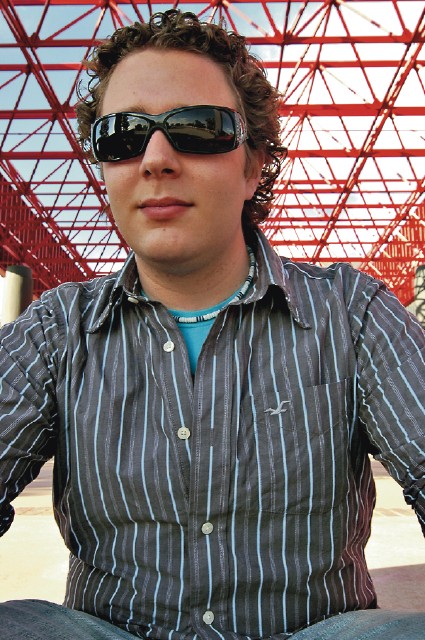David Danzilio is gay. He’s 18. And in one Albuquerque high school, he’s played a crucial role in creating a safe haven for other gay youth.Danzilio came to Albuquerque a couple years ago from the liberal-leaning city of Boston. He ended up in Northeast Heights Albuquerque at La Cueva High School, a school Danzilio says is known for its more conservative views. He quickly realized he wasn’t in Kansas, er, Boston, anymore. Feeling a lack of tolerance in the halls of the school spurred Danzilio to petition for the creation of a Gay Straight Alliance (GSA), a club that has been successful in other schools around the country, including nearly every other high school in Albuquerque. David was successful, and today the club thrives with a diverse mix of gay and straight, out and in the closet. The mission of the GSA is simple: to create a safe microcosm for youth in the gay community. What were your experiences in Boston compared to Albuquerque, in terms of acceptance of gay culture? It’s definitely a more conservative environment here; you can’t get much more liberal than Boston. I didn’t know anybody [when I first moved here], and I had to be wary of who I [came out to]. We all know La Cueva High School is a little bit more conservative than the rest and I was little bit wary of [going to the school] because of its reputation. Coming here was hard, but I absolutely love it, and it’s not as hard as I thought it would be to be gay [here]. There are a lot of gay people in Albuquerque; believe it or not, there are a ton of gay people here. There are people who think the entire gay community is based on the bar and nightclub scene. When you came here, you were under 18–how were you able to get involved in the gay community and meet others? It was more about meeting one person and then meeting more and more. You sort of flock together. If you meet one person, you get into the network. Everybody knows a gay person, and when they find that one person is gay, they’ve got to introduce them to another gay person. But the whole "gay is a bar scene" [thing]–it’s true, but not for everybody. It’s just like meeting somebody who is straight; you don’t meet them because they are straight; you meet them because you meet them. What sort of actions does the La Cueva GSA perform in the community? We have done a lot of things, like the Day of Silence. The Day of Silence is when you stay silent throughout the whole day and you carry a card that says something like: "I am not talking in remembrance of hate crimes." We pretty much participate in events that raise awareness of the gay community and promote tolerance. Why did you start a GSA at La Cueva? The lack of tolerance and acceptance in that school just got to me. And I was like, "Something needs to change and I am going to do whatever I can to help change this." I remember when I was going around asking people to sign the charter, [which was necessary to start the alliance]. We only needed 10 people to sign it and I wanted to get a lot more than that. I got a hundred and some people to sign. Why did it take so long to institute a GSA at the school? I don’t think people had the balls to do it. It is controversial, and the demographics at La Cueva are conservative: Christian, straight, white kids. I don’t really think people wanted to step out of the box and start a group that could cause so much controversy. Was there any protest from the school? Not officially; nobody came up to me and said we shouldn’t have this here. Legally, we have every right to start that group. Who is in GSA? Mostly straight people? Mostly gay people? Is it a safe haven for people who haven’t come out? I think it’s all of the above. It’s an even mix of gay and straight people because it’s the Gay Straight Alliance. And I think a whole other purpose of the GSA was to create a safe haven for those who are afraid to come out. And they can come there, and say, "Well, these people aren’t afraid, and nothing has happened to them." Are there a lot of high school-aged people who aren’t out? [The general] high school ages are 15 to 18, and [during that time] you’re uncomfortable with yourself as it is. There is enough going on: You have to come to terms with your sexuality, you have to admit it to yourself and you have to admit it to others. It’s especially hard for people to come out when they are in high school because it’s one of the most intolerant places in the world. What would you say to a person who argues against the GSA by saying all sexuality should be kept out of the schools? I would tell that person to open their mind a little, to think back to high school and think, "What was I doing in high school? How did I feel about myself during puberty?" You know, sex is on your mind a lot; it’s your age. So it would be impossible to take all sexuality out of high school. The main thing, right now, is to accept all sexualities.
Christie Chisholm contributed to the writing of this article.



